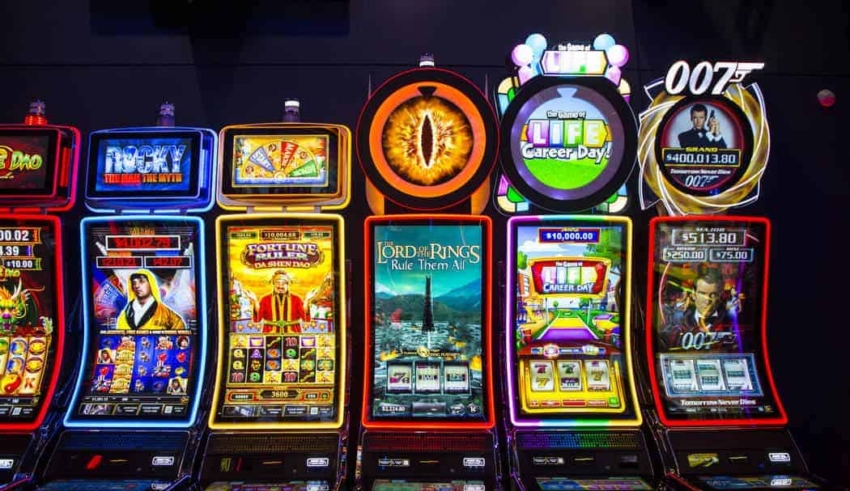
Slot machines have evolved since their creation in the late 19th century. It all started with a basic mechanical gizmo called the “Liberty Bell,” but now it’s become a massive global industry. This journey through time, filled with innovation and technology, is truly fascinating.
The once-mechanical wonders have transitioned into sophisticated digital marvels in the modern era. Online slots captivate players with immersive experiences and exciting possibilities. An example like Fishin Frenzy has made playing slots convenient for everyone as it enables players to easily access their favourite games. These digital slots boast intricate themes, stunning graphics, and interactive bonus features. They come with abundant paylines, progressive jackpots, and an array of themes which enable them to cater to a diverse audience, offering something for every type of player.
As you read on about the fascinating history of these spinning wonders, you’ll learn how they’ve transformed from simple machines to the digital marvels now found in online casinos worldwide.
Table of Contents
The Beginning of Slot Machines
Slot machines began in the late 19th century when a skilled mechanic named Charles Fey crafted a ground breaking invention. He had no idea that his invention would forever alter the gaming world. This creation, called the “Liberty Bell,” marked the beginning of what would become a global phenomenon in gaming.
The Liberty Bell machine was a marvel of its time, featuring a simple yet captivating design. It consisted of three spinning reels adorned with five distinct symbols. These symbols are diamonds, horseshoes, spades, hearts, and the iconic Liberty Bell. Players would pull a lever to engage with the game, setting these reels into a thrilling motion. The anticipation was palpable as the symbols whirled, with players hoping they aligned in the right combinations.
Through the years, the Liberty Bell gained popularity. Fey saw its potential, and he began manufacturing identical machines. Soon, these gaming devices found their way into various public places, from saloons to barber shops. Their presence in these locations added an element of entertainment to everyday life, as people try their luck in the hopes of securing that coveted jackpot.
It’s worth noting that slot machines faced legal challenges and bans in some states in the United States due to concerns about gambling. Despite these obstacles, the allure of slot machines remained unshaken. Their popularity only continued to grow, setting the stage for the next significant evolution in their history.
The Mechanical Marvels of Yesteryears
The roots of slot machines can be traced back to the late 1800s as mentioned earlier. Back then, these machines were mechanical. Players had to pull a physical lever to play, and the gears and springs inside decided if they won. If you did win, you might get cigars, drinks, or coins as prizes. They were different from what we see today.
It was in the 1960s that electronic slot machines came along. These new machines were a game-changer, as they allowed more games and bigger prizes, making them popular in casinos.
Despite these advancements, the core principles of slot machines have remained consistent throughout their history. Whether mechanical or electronic, the basic idea of spinning reels and matching symbols has stayed the same. People have always loved the excitement of trying their luck with slot machines, no matter how they’ve evolved.
Electromechanical Advancements
After World War II, the interest of soldiers in gambling machines grew, and governments saw the potential for tax revenue. In 1963, Bally Manufacturing released “Money Honey,” the first electromechanical slot machine. It had a bottomless coin hopper and could automatically pay out up to 500 coins, reducing the need for attendants.
This innovation marked the shift from mechanical to electromechanical slots. The new machines combined mechanical and electrical components which enabled creative features like many paylines and bonus rounds. This advancement made slot gaming more dynamic and enjoyable for a wider audience.
With electromechanical slots, game developers could introduce more engaging and creative features. For example, incorporating many paylines allows players to win in various ways. Bonus rounds, triggered by specific symbol combinations, added a new layer of excitement. These features made it more dynamic and interactive, captivating a broader audience.
The Digital Revolution
When the internet became widespread, it changed how people played slot games. This led to the creation of online slots, which you could play on your computer. In 1996, Microgaming introduced the first online slot, and with its success, many other companies followed.
Before the digital revolution, slot machines had physical spinning reels. But with online slots, everything happens on a computer screen. It allowed game makers to get creative. They could make slots with different features to make it fun and exciting. They could have various themes, cool animations, and bonus features for everyone.
The significant change is that instead of seeing actual spinning reels, you see pictures of them on the screen. This made the games more exciting and interactive. Game designers could add special rounds where you could win more, like free spins or bonus games. It was like going from playing a simple game to being part of a whole adventure.
Also, because online slots were on the internet, casinos could offer many different games. Before, casinos needed space for all the physical machines. But online, they could have hundreds of other slots for players to choose from. It made things more interesting for players as they had a more extensive selection.
The digital revolution in slot gaming means people went from playing with physical machines to playing on a computer screen. It made slot games more accessible to many people. It opens up a new world of possibilities for game designers to create fun and exciting games. As technology advances, even more incredible slot games in the future can be expected.
Conclusion
Looking ahead, it’s evident that the evolution of slot machines is far from over. With the advancement in technology, the new experiences awaiting players are beyond imagination. This evolution shows how innovative the human society is, and how much they love having fun. As people continue to spin through time, it’s clear that slot games will remain part of the gaming heritage.















